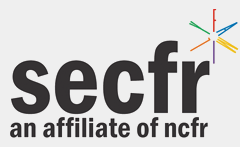Proposal Focus
Education
Presentation Type
Presentation
Abstract
People who live with Type 1 diabetes (T1D) have to carefully self-administer insulin to keep blood glucose levels in a safe healthy range – a complex and demanding task (WHO, 2016). Social support has been found to alleviate diabetes-stress and increase management behaviors (Mackey et al., 2016). Social support from family members is especially advantageous, however currently no single family-based intervention has been established to show reliable improvements in T1D outcomes (Rosland et al., 2010). A review of the literature reveals that social support promoting autonomy is associated with the best T1D outcomes; social support that undermines autonomy is associated with worse T1D outcomes (Kelly & Berg, 2018). These findings are consistent with the self-determination theory (SDT), which identifies autonomy as a psychological need (Ng et al., 2012). The findings of this literature review support the need for a disease-specific family-based intervention that is built on the foundations of SDT.
Keywords
Type 1 Diabetes, family-based intervention, social support, autonomy, self-determination theory
Location
Wyndsor II
Start Date
3-4-2020 2:05 PM
End Date
3-4-2020 3:15 PM
Management of Type 1 Diabetes: A Family Affair
Wyndsor II
People who live with Type 1 diabetes (T1D) have to carefully self-administer insulin to keep blood glucose levels in a safe healthy range – a complex and demanding task (WHO, 2016). Social support has been found to alleviate diabetes-stress and increase management behaviors (Mackey et al., 2016). Social support from family members is especially advantageous, however currently no single family-based intervention has been established to show reliable improvements in T1D outcomes (Rosland et al., 2010). A review of the literature reveals that social support promoting autonomy is associated with the best T1D outcomes; social support that undermines autonomy is associated with worse T1D outcomes (Kelly & Berg, 2018). These findings are consistent with the self-determination theory (SDT), which identifies autonomy as a psychological need (Ng et al., 2012). The findings of this literature review support the need for a disease-specific family-based intervention that is built on the foundations of SDT.

